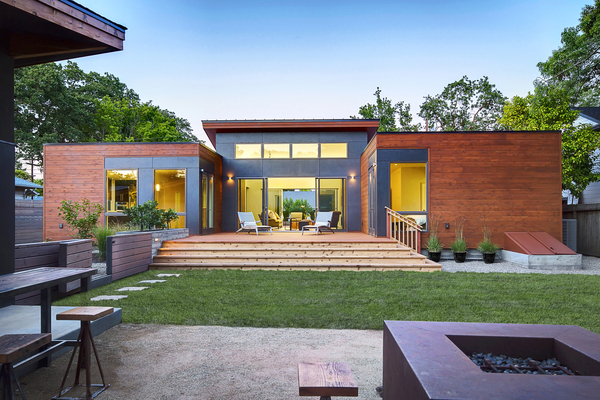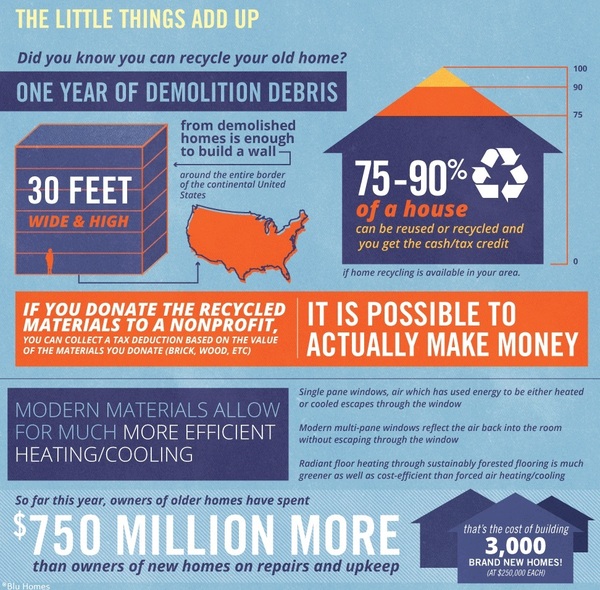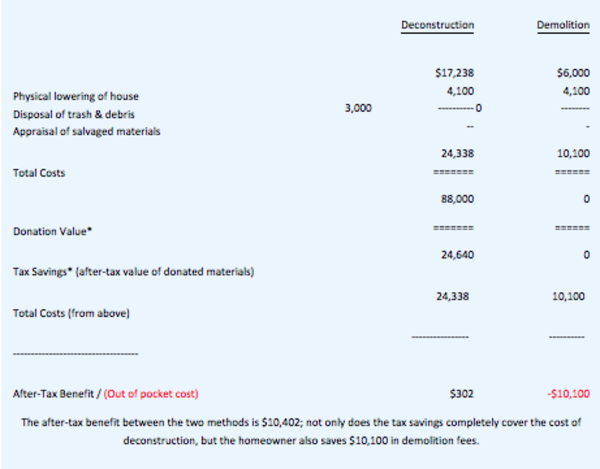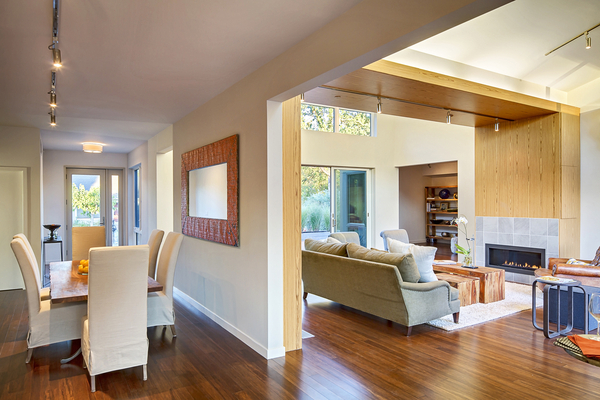Recently, Blu Homes has been approached by several clients who were interested in tearing down decrepit homes and rebuilding a Blu home in that house's place. Although the existing homes were suffering from too many structural issues to renovate efficiently, we knew there had to be a green way to approach the issue of a teardown. As part of the process of rebuilding the homes, we've been researching how to recycle an existing home. If you're one of those homeowners who has been wondering about the best way to environmentally approach a teardown and rebuild, we have good news: recycling a home makes environmental sense as well as economic sense.
The How-To of Recycling a Home
The process of taking a home apart and recycling it is called deconstruction. When you deconstruct -- instead of demolish -- an existing home, it means that you essentially dismantle the home piece by piece in an attempt to save and reuse as many of the building's components as possible. Instead of bulldozing a house and adding to landfill waste, a trained crew essentially deconstructs a home, with the home's components then donated or sold. This process focuses on giving materials within a building new life once the building as a whole is no longer viable.
Interested in the steps for deconstructing a house? It's simpler than you think. Here are the five major steps for deconstructing a home.
1. To begin, find a deconstruction expert in your community.
2.Arrange an appraisal consultation, where the deconstruction company will visit the home and give a preliminary assessment of the value of the home.
3.A deconstruction contractor will then submit a bid to carefully deconstruct the home.
4.The home will then be deconstructed over the course of several days.
5.Finally, the materials will be donated or sold.
In a deconstruction project, almost everything in a home can be salvaged, save for the sheetrock and plaster. Salvageable items typically include doors, windows, cabinets, lighting fixtures, framing lumber, plumbing fixtures, countertops, copper wiring, roofing materials, brick and flooring.
Making Deconstruction Pay
While it's obvious that deconstructing a home is a greener option than demolishing it, there's another reason you should consider it: money. There are financial benefits available to homeowners interested in deconstructing a home and donating the salvaged building materials. In some cases, used building material donations can actually pay for the costs of deconstruction and contribute some money toward building the new home. Tax credits, which are given in exchange for donations, are another added benefit. While only an IRS qualified appraiser can provide you with the fair-market value of your donation here's one compelling example that might convince you to consider deconstruction*.
A Feel-Good Solution
Another great aspect of deconstructing a home is that many deconstruction companies are non-profits that have worked with job training programs to offer stable employment for individuals or families that were previously underemployed. After considering this social aspect, the environmental aspect and the prospect of actually saving money in the teardown process while building a new home, we really believe that deconstruction is not only the most logical solution when it comes to dealing with a teardown, but also the most beneficial one as well. That's why we've created a landing page on the Blu Homes website to share more information about deconstruction. Visit www.bluhomes.com/deconstruction to find out more about the benefits of deconstruction, from what can be salvaged to how much money you can make on by recycling the parts of your home.
*This is a general estimate. Figures will vary depending on location, age and condition of the home and materials, topography, type of siding and walls, landfill and deconstruction company rates. Please contact a deconstruction company in your area for a better understanding of the deconstruction value of your home.



